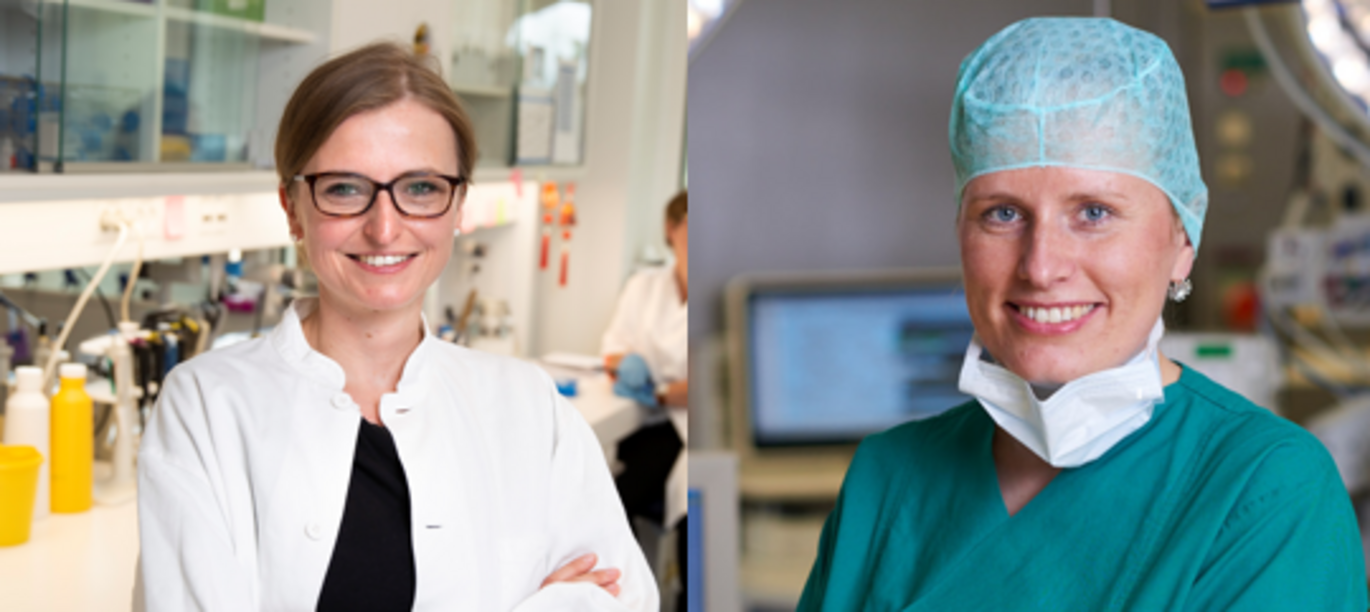Applying new methods to improve therapy for colorectal cancer liver metastases
Current therapies for colorectal cancer metastases are limited. By applying state-of-the-art technologies, AIAS fellow Joanna Kalucka seeks to improve this in a new cross-disciplinary project with Dr Lena-Christin Conradi, University of Göttingen, General, Visceral and Pediatric Surgery. A Novo Nordisk Foundation Tandem Grant of DKK 10 million will support the project.

Colorectal cancer is one of the most common cancers and is a highly metastatic tumour type. Patients who suffer from colorectal cancer have a high potential for developing liver metastases. Many colorectal cancer liver metastases establish a vascular supply via vessel sprouting, commonly referred to as ‘angiogenesis’. Angiogenesis has been widely studied and has become a target for anti-angiogenic therapy. However, colorectal cancer liver metastases can also grow and invade the surrounding parenchymal tissue via alternative vascularization mechanisms, including vessel co-option. In this process, cancer cells “hijack” pre-existing blood vessels to grow and invade healthy tissue. In this case anti-angiogenic therapy shows a worse response.
Unclear molecular mechanisms
Current methods used to define whether a tumour employs vessel co-option or angiogenesis to support its growth are insufficient and inaccurate. Therefore, many patients do not respond to treatment while also being exposed to side effects from ineffective anti-angiogenic therapies. In addition, the current molecular mechanisms underlying the difference from angiogenic tumours remain unclear.
Using state-of-the-art technologies - transcriptomics and proteomics
The unclear molecular mechanisms are the focus in a new cross-disciplinary research project that brings basic and clinical research together, funded by a Novo Nordisk Foundation Tandem grant of DKK 10 million. By using state-of-the-art approaches such as single cell (spatial) transcriptomics and proteomics, AIAS Fellow Joanna Kalucka (Assistant Professor at Department of Biomedicine, Aarhus University) and Priv.-Doz. Dr. Lena-Christin Conradi (Consultant, General, Visceral and Pediatric Surgery, University Medical Center Göttingen) will characterize and identify the molecular signatures that are associated with vessel co-option. A major question for vessel co-opting tumors is why they are more invasive, and why vessel co-option provides a survival advantage to these tumors.
Better prediction and therapeutic methods of colorectal cancer
The analyses that Joanna Kalucka and Lena-Christin Conradi will undertake allow them to understand the molecular signatures to identify potential treatment targets or repurpose the available therapy, e.g. to target one or both types of metastases. Furthermore, their research project aims to identify diagnostic markers in the primary tumors and/or in the blood stream via liquid biopsies of the patients that would allow for a better prediction of the subtype of colorectal cancer liver metastases.
About the Novo Tandem Programme -Translational research collaboration between Basic and Clinical Researchers
With the ‘Tandem Programme’ The Novo Nordisk Foundation wishes to strengthen and support Danish translational health research of high international quality. One basic scientist and one clinical scientist must work together on a project, which is clinically relevant, cross-disciplinary, and translational in nature, to catalyse improved treatment or diagnosis of patients, or understanding of underlying disease mechanisms. A Tandem Programme grant is funded with up to DKK 10 million.
https://novonordiskfonden.dk/da/grants/tandem-programme-translational-research-collaboration-between-basic-and-clinical-researchers/
Contact
Joanna Kalucka, Assistant Professor, AIAS-COFUND Fellow and Lundbeck Foundation Fellow
Email: joanna.kalucka@aias.au.dk
Mobile: +45 52 16 98 17
Website: https://biomed.au.dk/kalucka-lab/
Department of Biomedicine and
Aarhus Institute of Advanced Studies (AIAS)
Aarhus University
Denmark
